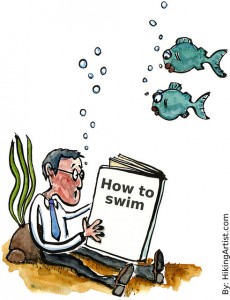While many LRNGO users meet to learn from each other locally in the same city, or even from a neighbor down the street, others choose to make their community much wider and go around the world. Of course, this requires using a live video chat platform, like Facetime, Google Hangouts or Skype.
One of the things you may find interesting though, is that even among those LRNGO users using video chat, the percentage who prefer to learn from each other remotely when they have a choice is still the minority. When given the choice, roughly 75% of you prefer to list meeting in-person rather than online.
This reminds us that for the majority, although technology is used to facilitate, in the case where you have a choice, face to face is preferable. At the end of the day, learning from each other (especially one-to-one) is most often still a very traditional in-person proposition.
Along those lines, some of you who are Skyping each other from afar for language exchange specifically may be interested in eventually meeting in person if it can be arranged. While facilitating these arrangements directly is beyond the scope of the introductory services we provide through LRNGO, you may be interested to know that there is now a website and online platform doing this.
Launched just last month, TalkTalkBnb is a social network for learning languages from local hosts while traveling. The idea is that travelers receive complimentary food and lodging from hosts (people wanting to improve their language skills) in exchange for helping the hosts learn and practice the traveler’s native language throughout their stay.
We all know that language exchange is valuable for accelerating the learning process and is the most cost effective way to receive the benefits of one-to-one language tutoring, but now it can also be used as a means of “currency” for your travels. That’s a real win/win.
You can find out more here, and hopefully some of you who have met here on LRNGO and are now practicing language exchange remotely can have the opportunity to travel and meet in person by bartering for accommodations. It’s a pretty cool concept that we hope takes off around the world.


 Welcome to 2014 everyone! I know, better late than never. Clearly my New Year’s resolution is NOT to stop procrastinating.
Welcome to 2014 everyone! I know, better late than never. Clearly my New Year’s resolution is NOT to stop procrastinating.